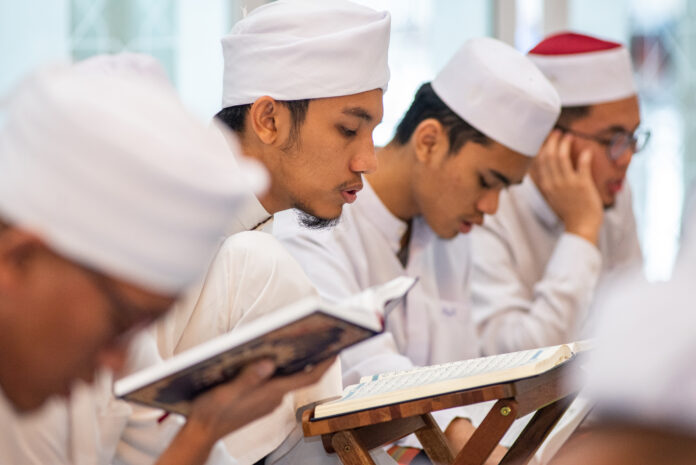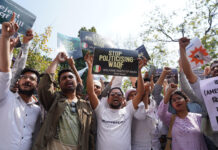Overwhelming majorities of Muslims in Malaysia and Indonesia favour making Shari’ah law the official law of the land, according to new research.
A Pew Research Center survey found that 86% of Muslims in Malaysia support using Shari’ah as the national law, while 64% of Indonesian Muslims say Shari’ah should be used as the law of the land.
The survey, which was carried out between June and September 2022, also found that:
- Nearly all Muslims in both countries say being Muslim is important to be truly Indonesian or Malaysian.
- Muslims in both countries commonly describe Islam as a culture, family tradition or ethnicity – not just “a religion one chooses to follow.”
- Malaysian Muslims were in favour of religious leaders entering politics, while close to half of the respondents surveyed in Indonesia embraced this.
- Muslims in Indonesia (58%) and Malaysia (69%) say religious leaders should talk publicly about the politicians and political parties they support.
- In Indonesia, 92% of Muslims say it is unacceptable for a person to leave Islam.
Malaysia follows a dual legal system that encompasses both secular and Islamic laws. Its secular legal system is based on English common law and applies to all citizens of Malaysia, regardless of their religious beliefs. This covers various areas of law, including civil, criminal and commercial law.
In addition to the secular legal system, Malaysia also has an Islamic legal system based on Islamic law. This system primarily applies to Muslims in matters related to personal status, family law and religious practices. Each of Malaysia’s 13 states has its own Islamic legal framework, and the implementation of Islamic law can vary from state to state.
Some states in Malaysia have also implemented Islamic criminal laws that can apply to Muslims, covering offenses like theft, adultery and alcohol consumption. However, the severity of these punishments and their application can vary between states.
Meanwhile, Indonesia is officially a secular state with a constitution that recognises religious freedom. The state ideology, Pancasila, promotes unity and diversity, and it upholds the principles of social justice, democracy and religious freedom.
Subscribe to our newsletter and stay updated on the latest news and updates from around the Muslim world!
Indonesia has certain regions known as “Special Administrative Regions” where Islamic law is applied to varying degrees. These regions include Aceh, which has the most extensive implementation of Shari’ah law, and several regencies and municipalities in other provinces like West Java, South Sulawesi and others.
However, Aceh is the only province in Indonesia that has been granted special autonomy to implement Shari’ah law more comprehensively. This covers various aspects of life, including dress codes, morality and criminal law. Punishments may include caning for certain offenses.
In some other parts of Indonesia, certain aspects of Islamic law may be implemented, such as regulations related to Islamic dress codes, religious observance or morality. However, the extent and nature of implementation can vary widely between regions, and in many areas, secular laws continue to prevail.
That said, the influence of Islam growing in both countries.
Malaysia’s state elections in August saw the Islamic Parti Islam Se-Malaysia strengthened its hold on three of six states up for grabs while wresting more seats in the country’s wealthiest state of Selangor.
Meanwhile, Indonesia recently enacted a criminal code that punishes people who have sex outside marriage in the most significant example of Islamic influence over state policies.






















